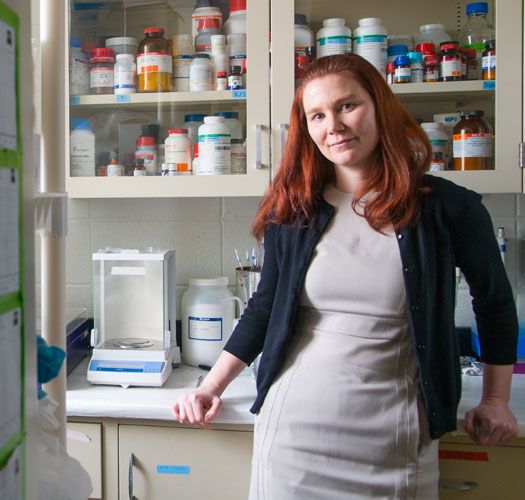Sabrina Jedlicka, assistant professor of materials science and engineering and John Coulter, interim Dean and professor of mechanical engineering and mechanics, are continuing their multi-year effort to develop well plate inserts that will enable advanced, efficient cell culturing for biomedical research. This work has been previously supported by the NSF Interdisciplinary Research (IDR) program and subsequently led to a recent NSF Innovation Corps grant. The team has now been awarded a new grant from NSF to continue to move the concept and related nanomanufacturing technology toward high volume commercial applications.
The new grant, entitled "Proof of concept study and scaleability of injection molded nanostructured biomedical consumables," focuses on manufacturing next-generation inserts for cell development devices. The Lehigh team will use injection molding as a high volume and repeatable method of manufacturing devices containing customized nanostructured surfaces that will promote desired cell development without additional chemical treatments.
"Scientists have reached a bottleneck,"; Jedlicka says. "To move cell-based therapy forward as a widely available, safe treatment option, we need to be able to differentiate cells consistently by growing them under standardized conditions and on standardized surfaces."
Jedlicka has also recently been part of another successful NSF proposal seeking to improve water quality monitoring in partnership with Kristen Jellison, associate professor of civil and environmental engineering.


